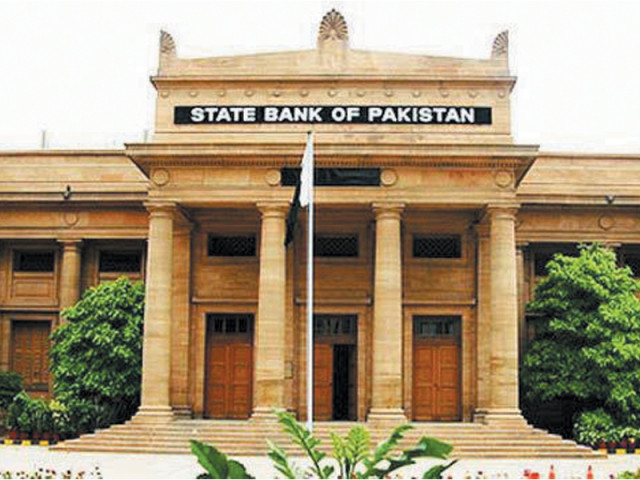Monetary policy: SBP leaves rates unchanged for now, hints at desire for cut
Statement highlights subsidies as one of the biggest macroeconomic threats.

The State Bank admitted that its open market operations – the ones that keep on pumping the banking system with liquidity – are unsustainable. PHOTO: FILE
In the first monetary policy announcement since the central board of directors of the State Bank of Pakistan was brought up to full strength, the central bank decided to leave the benchmark interest rate unchanged at 9.5%, though it hinted broadly, persuasively, and repeatedly at a desire for a cut in interest rates.
Holding the discount rate – the interest rate at which the SBP lends money to commercial banks from its discount window – was a largely expected move: virtually all analysts polled by various news organisations had indicated that they expected interest rates to hold steady. Trading in the government bond market largely agreed with that sentiment.
The monetary police statement, therefore, is interesting not for what it did, but what its wording says about the newly appointed board of directors. The most obvious difference from the previous statement was the relative lack of bureaucratic language and more forthright tone about the impact of the monetary policy set by the State Bank, including a robust defence of the 4.5% interest rate cut over the past two years.

The statement, indeed, had about as much poetic rhythm as an economic policy document can get: the first few sentences of most paragraphs started off with defending interest rate cuts and highlighting the positive effects on the economy of such cuts, but invariably, the last sentence in the paragraph mentioned, almost as a dreaded obligation, the risks to the balance of payments and the currency exchange rate is such cuts were to be continued.
It seems obvious that the SBP wanted to cut interest rates, and indeed, If they had gone by the old rule of keeping real interest rates in the economy close to zero, the State Bank would have been able to support a 1.5% interest rate cut, since inflation for the first nine months of fiscal 2012 is hovering around the 8% mark. But worries over the repayments to the International Monetary Fund, including an upcoming $838 million in the next few months, appears to have been the primary motive for keep rates flat.
The concluding paragraph is a dramatic, anti-climactic crescendo: after having talked at length about how inflation has been lowered substantially in the preceding paragraph, the statement concludes by announcing that rates will stay the same. It is almost as if the SBP wants to say: “The announcement was not a shock, but we wanted to build up the suspense anyway.”
And in keeping with monetary policy statement tradition, the finance ministry remains the Pakistani macroeconomic equivalent of Lord Voldemort: They Who Must Not Be Named. But the statement is more scathing of the inability of the federal government (which they insist on referring to as the “fiscal authority”) to control its spending. The SBP was also very specific and blunt about what they think is causing the spending problem: they all but come out and say: “It’s the subsidies, stupid.”
Using language that cannot be mistaken for incomprehensible economist-speak, the central bank spells it out plainly that the government needs to phase out subsidies if it is to avoid a catastrophic reckoning later. If the government gets rid of the subsidies too fast, inflation expectations will cause prices to skyrocket. If it does it too slow, it may soon hit a brick wall where it has no more borrowing options left and simply starts printing money, which would also cause inflation.
The State Bank also took the time to admit that its open market operations (OMOs) – the ones that keep on pumping the banking system with liquidity that the finance ministry then greedily gobbles up through its borrowing – are unsustainable.
The banks would do well to take notice of this shot across their bow: if the OMOs end, they will actually have to do what they are supposed to be doing in the first place, which is to keep enough cash on hand to actually meet their daily liquidity requirements. This will hurt the banks’ profit margins, but will also make their revenue streams less dependent on SBP largesse.
Published in The Express Tribune, April 13th, 2013.
Like Business on Facebook to stay informed and join in the conversation.



















COMMENTS
Comments are moderated and generally will be posted if they are on-topic and not abusive.
For more information, please see our Comments FAQ